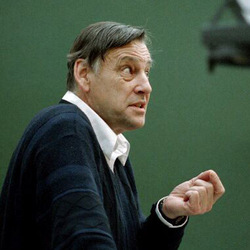
The aim of the class is to consider the role of the contextual dimension of vagueness and its implications for sorites paradoxes and the logic of vague predicates.
No prior knowledge of theories of vagueness is required, but some familiarity with formal semantics and predicate logic will be useful.
Hans Kamp |
Email: hanskamp (AT) austin (DOT) utexas (DOT) edu
Bio:Hans Kamp's work focuses on the question how human beings represent meaning and how those representations enable them to do the various things that they do with information. The founder of Discourse Representation Theory, and a leading figure in logic, linguistics, and the philosophy of language, Professor Kamp has written articles on tense logic, adjectives, vagueness, free choice permission, attitudes, and semantic representation that are considered classics in their areas. He is the author of From Discourse to Logic (Kluwer, with Uwe Reyle) and Thinking and Talking about Things (MIT Press, Jean Nicod Lectures).
|
Mark Sainsbury |
Email: marksainsbury (AT) austin (DOT) utexas (DOT) edu
Homepage: https://webspace.utexas.edu/rms9/www/
Bio:Mark Sainsbury taught for several years at King’s College London before coming to Austin in 2002. His most recent book is jointly authored with Michael Tye (Philosophy, UT) and is due out in February 2012: Seven Puzzles of Thought and How to Solve Them: An Originalist Theory of Concepts (OUP).
|